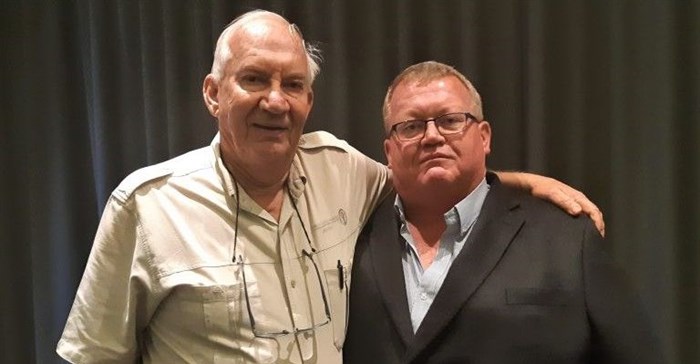
Top stories






More news

Marketing & Media
Ads are coming to AI. Does that really have to be such a bad thing?















Biosecurity plays a fundamental role in ensuring farmer profitability and food security in South Africa. In order to establish accountability, responsibility and preventative measures in dealing with disease outbreaks, industry role-players gathered at the Protea Fire and Ice Hotel in Pretoria on 15 November 2019 to have an open discussion about the true cost of biosecurity challenges in South Africa.

"The FMD outbreaks are some of the biggest setbacks to hit South Africa’s agriculture sector in the last seven to eight years. The latest outbreak, which occurred in a previously established FMD-free zone in the Molemole district of Polokwane, was confirmed on 8 November 2019, with additional cases verified on 9 and 15 November 2019. An investigation has been launched to determine the source of the outbreak. So far, all signs are pointing towards an auction pen, but this has not yet been confirmed," said Dr Vervoort.
According to Dr Vervoort, it is estimated that the FMD outbreak of 2012 cost South Africa R6 billion. The ban on wool and meat exports earlier this year cost the economy R10bn. "If we suffer outbreaks like this every three years, farmers will go out of business. We have to create an environment in which farmers can be profitable," he added.
The standard response to late detection of disease outbreaks in South Africa comes down to a lack of capacity required to reinforce control measures and little to no government funding. For South African exporters to truly benefit from the African Continental Free Trade Agreement or any other export channels, both the government and industry role-players will have to take up the mantle of accountability concerning biosecurity.
Dewald Olivier, executive officer of the South African Feedlot Association, reported in May that the implementation of a national identification and traceability system in the livestock sector could cost roughly R200 million and take up to ten years to finalise.
The lack of these national systems leaves disease control, assurance of food safety, agricultural financing and trust between consumers and farmers to hang in the balance, with farmers bearing the brunt of the resulting financial strain.
"Biosecurity has to do with your farm gate, fences and foresight. We have already established the need for a livestock identification and traceability system to determine and trace the location of our livestock. In the meantime, farmers must ensure effective monitoring of their animals and take the necessary precautions when it comes to protecting their farm from outside threats," added Dr Faffa Malan, general manager of the Ruminant Veterinary Association of South Africa (RuVASA).
"Last year’s FMD outbreak cost us approximately R1,2 billion in terms of agricultural exports. We are in the process of rebuilding trust between South Africa and African and Middle Eastern countries. However, the problem now lies in the reinstatement of export bans following the latest FMD outbreak. If you cannot supply the export market on a continual basis, they will not readily buy from you," explained Dawie Maree, head of information and marketing at FNB Agriculture.


According to the Red Meat Producers’ Organisation (RPO), the resulting temporary ban on livestock auctions in Limpopo, Mpumalanga, Gauteng and the North West places a significant financial strain on the livestock industry. "The estimated weekly turnover for inland auction houses in big producing areas is R180 million. This outbreak has a huge impact on farmers’ profits, especially on small- and medium-scale farmers that utilise auctions as cash-flow management tools," added Dawie.
Gerhard Schutte, CEO of the RPO, says that the ban is not a long-term solution. "Auctioning in itself is not the problem. The lack of enforced regulation and monitoring at these auctions are the causative factors putting us at risk," concluded Schutte.

AgriOrbit is a product of Centurion-based agricultural magazine publisher Plaas Media. Plaas Media is an independent agricultural media house. It is the only South African agricultural media house to offer a true 360-degree media offering to role-players in agriculture. Its entire portfolio is based on sound content of a scientific and semi-scientific nature.
Go to: http://agriorbit.com/